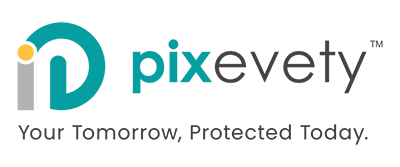Australia’s schools should be celebrating.
Australia’s commitment to ethics has reached an all-time high, with the 2025 Ethics Index from the Governance Institute of Australia revealing that 92% of Australians believe ethics is vital to society. And, among the standout performers in this year’s report were primary and secondary schools, which received strong public recognition for their ethical conduct, reinforcing their role as trusted institutions in shaping young minds.
Importantly, the education sector as a whole saw the greatest growth in ethical perception across all industries, further cementing its position as a cornerstone of ethical leadership in Australian society. This rise reflects the public’s deep trust in educators and their role in fostering fairness, integrity, and social responsibility from the earliest years.


Source: Governance Institute of Australia
AI and Cybersecurity/Privacy Protection top challenges
This recognition comes at a pivotal moment. A recognition of the values that underpin our education system. But as artificial intelligence (AI) and digital technologies rapidly transform classrooms, schools are facing mounting pressure to maintain ethical standards while embracing innovation.
The Governance Institute’s findings highlight a growing “Ethics Expectation Deficit” , the gap between the importance Australians place on ethics and their perception of how well it is upheld.
Notably, AI and cybersecurity have emerged as two of the top five ethical challenges facing Australian society in 2025. AI now ranks as the third most pressing ethical concern, just behind cost of living and housing affordability, with public unease focused on job displacement, algorithmic bias, and undisclosed AI-generated content. Cybersecurity breaches and privacy protection also remain high on the list, reflecting growing anxiety about data misuse and digital safety.

Source: Governance Institute of Australia
For schools, this means safeguarding their ethical reputation is more critical than ever. One of the most pressing challenges is the selection of education technology (edtech) suppliers. With over 500,000 learning apps available globally and AI tools increasingly embedded in teaching and administration platforms, schools must navigate a complex and often opaque marketplace. Experts warn that without rigorous quality assurance and ethical vetting, schools risk adopting tools that compromise student privacy, equity, and learning outcomes.
Can a supplier weaken a school’s ethical standing?
But with celebration comes challenge. As artificial intelligence (AI) and digital technologies reshape classrooms, schools must act swiftly and wisely to protect their ethical standing.
In particular, schools must avoid technologies with a documented history of data breaches, non-compliance with privacy laws, or unethical practices. A transparent paper trail of past violations should serve as a red flag during procurement. Choosing suppliers with a proven track record of ethical conduct, regulatory compliance, and robust cybersecurity measures is essential to protecting students and maintaining public trust.
A recent report by the University of Technology Sydney calls for a national quality assurance framework to help schools identify high-quality, ethical edtech solutions. This includes evaluating suppliers on data protection, curriculum alignment, inclusivity, and transparency. As I have shared previously as CEO of an Australian-owned compliance-driven EdTech company, schools must ask the tough questions about data sovereignty, cybersecurity, and regulatory compliance before onboarding any technology.
Reputable EdTech assessment tools now available
One valuable tool in this process is the Safer Technologies 4 Schools (ST4S) badge, a nationally recognised certification developed by Education Services Australia. The ST4S badge signals that a digital product has undergone a rigorous assessment against a consistent privacy and security framework, supported by all Australian state, territory, Catholic, and independent school sectors. Products with the ST4S badge offer schools greater assurance that they meet minimum standards for data protection, cybersecurity, and ethical use of technology. Importantly, only suppliers who meet strict eligibility criteria and pass a detailed risk assessment are invited to participate – meaning many vendors do not make it through. This makes the ST4S badge a powerful signal of trust and compliance in a crowded edtech market.
For schools seeking certified vendor assurance, 9ine Consulting offers a globally respected vendor assessment platform that goes beyond basic compliance. Trusted by hundreds of schools worldwide, 9ine provides independent, expert-led evaluations of edtech vendors across privacy, cybersecurity, AI governance, and safeguarding standards. Their Certified Vendor Programme helps schools identify products that meet international legal and ethical benchmarks, streamlining procurement and reducing risk. With tools like traffic-light risk categorisation, data transfer analysis, and safeguarding assessments, 9ine empowers schools to make informed, ethical decisions about the technologies they adopt.
And of course, any supplier that places its organisation through the rigorous risk-based ISO27001 certification program which is audited twice annually (by a third-party auditor for a pre “internal audit” and the actual audit conducted by an external ISO auditor), must be placed at the top of any supplier list!
Take a more careful, measured approach to school procurement
Maintaining Australia’s strong ethical standing in education will require ongoing vigilance, informed procurement, and collaboration between educators, policymakers, and technology providers. Schools, already leading by example, have an opportunity to set the benchmark for ethical innovation – ensuring that as AI grows, it does so in service of students, not at their expense.
Ultimately, the journey toward ethical edtech deployment is not one schools should walk alone. The most successful outcomes will come from partnerships with suppliers who share the same values, understand the stakes, and are committed to walking alongside schools for the long haul. In a fast-changing AI world, finding a partner who is aligned, transparent, and resilient isn’t just helpful – it’s essential.
We’ve got the frameworks. We’ve got the momentum. Now, schools need to step up and make smart, values-driven choices about the tech they adopt.




